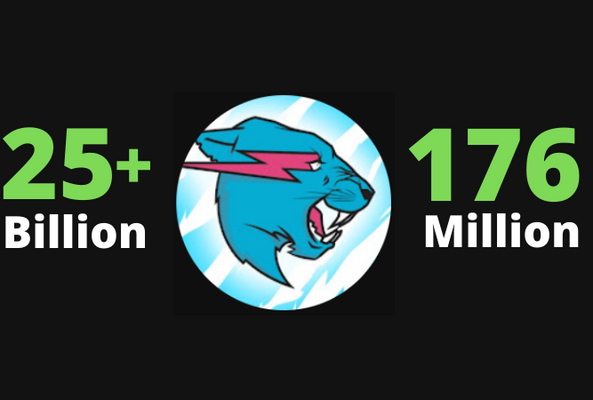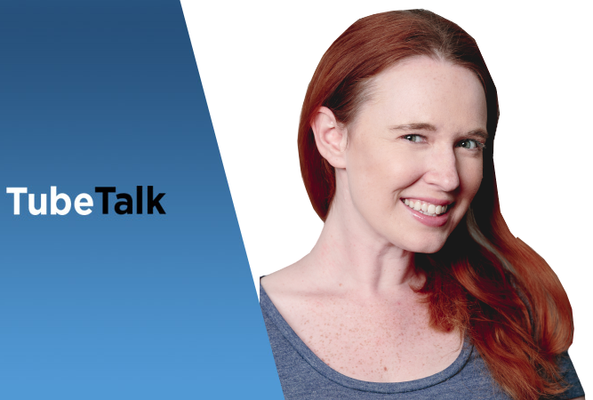Lydia Sweatt is a writer who loves balancing her article/blog time indoors with a healthy dose of nature. She bikes, hikes, and identifies edible plants along the way.
Meet Tim Schmoyer, Your New YouTube Coach at vidIQ
If you've watched any YouTube growth videos in the past decade, you probably know Tim Schmoyer. He belongs to a class of veteran creators who teach the secrets of YouTube, such as how to get more views, subscribers, and income from online videos.
Tim never set out to become a YouTube strategist, per se. It just sort of happened. His early YouTube videos were a tool to introduce his girlfriend to family back home — nothing more, nothing less. But as the views rolled in, he started learning more about the YouTube algorithm, video discovery, and how it all works.
Eventually, Tim became so knowledgeable that he solved "YouTube problems" for friends and family. He even got a full-time job helping people grow their channels in 2011.
Just two years later, Tim would launch Video Creators, a consulting firm that helps people (and brands) nail their YouTube strategy. Since 2013, the company has coached over 5,000 clients to a collective 20 billion views and 100 million subscribers.
Now Tim is embarking on a new journey. To help even more creatives, he's selling Video Creators to vidIQ. As part of the deal, Tim will become chief creator coach at vidIQ and expand his reach on a global scale.
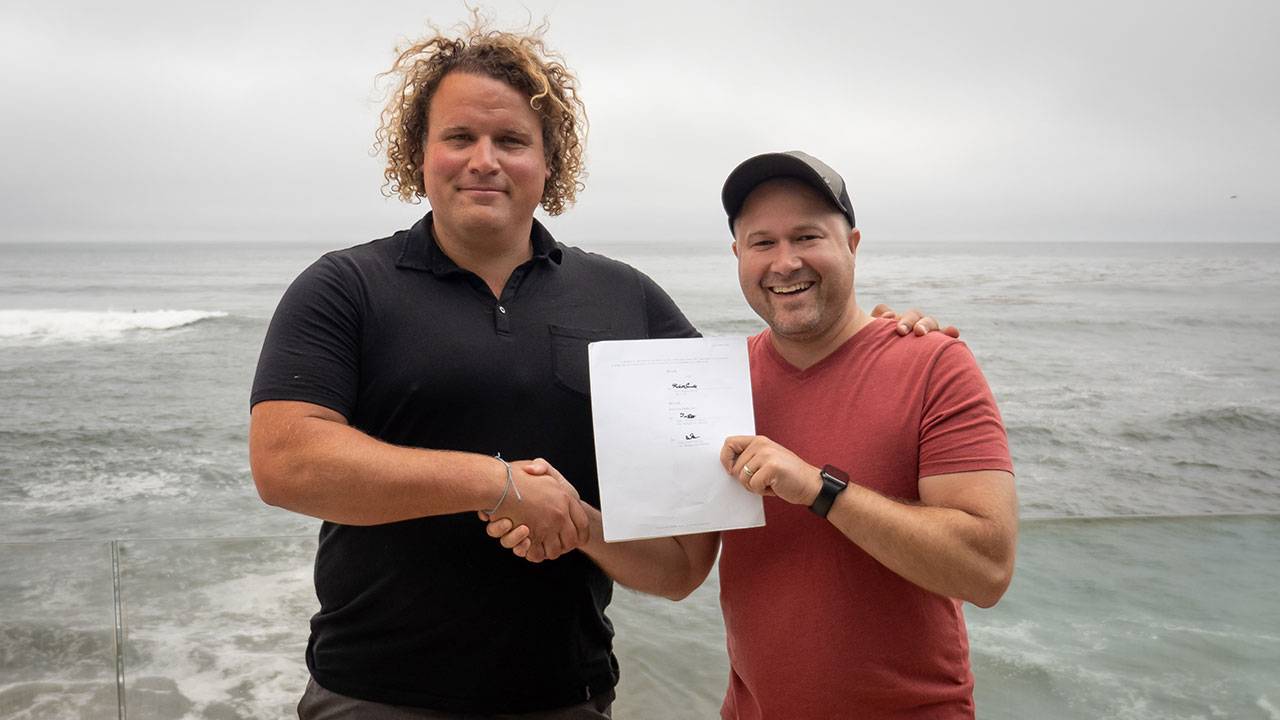
"Video Creators worked with 635 clients last year. vidIQ has 2 million users a week, so the opportunity to help even more creators is what I'm really excited about," Tim says.
You'll be seeing Tim much more in the future, especially if you're enrolled in group coaching through vidIQ Max. In the meantime, get to know him better in this insightful Q&A.
Q: You started posting YouTube videos in 2006. What inspired you to learn and master the platform?
It was mostly out of concern that I was putting up these somewhat private videos that I thought no one would be interested in. And if anyone found them, I thought they would just ignore them.
Back in the Myspace days, people always said to never use your real name on the internet. If you do, people will hunt you down and kill you for some reason. And so I was concerned when strangers started watching and commenting on my videos. I thought, Should I take my YouTube videos down? Are they bad? What is going on here?
That's when I started asking more questions, like how are people finding me on YouTube? Why are they coming back, and why do they keep watching? So I was curious, and I started seeing that people were engaging, commenting, and showing interest in my story. So that led me to explore deeper.
Q: Some creators have a hard time growing on YouTube. Did you face challenges while learning video strategy?
Yes and no. The "yes" part is that, as YouTube became more popular in 2010, it ran a competition called YouTube NextUp. It was basically a popularity contest. If you got enough votes, YouTube would work with you and train you. I really wanted that, but I was not the biggest channel back then, and I didn't have enough of a following to get enough votes.
That was difficult for me because I really wanted to learn, and I really wanted the opportunity to connect with YouTube. So the challenge I faced was thinking, Man, their content is so good, and they're growing faster than me. I'm doing my best, but it's not good enough for me to win this competition.
But I continued to learn, and I continued to grow. And what I found is that I have a talent for helping other people succeed on YouTube.
The "no" part is that I always found ways to accomplish what I wanted. Being on YouTube and helping others understand it scratched that itch for me.
Q: How did you overcome your challenges on YouTube?
At first I was making mistakes most creators make. I was looking at videos on a surface level: the style of the content, the editing, or the production value. I wasn't paying attention to the branding, the human connection, and the storytelling — skills that aren't as obvious but make a huge impact.
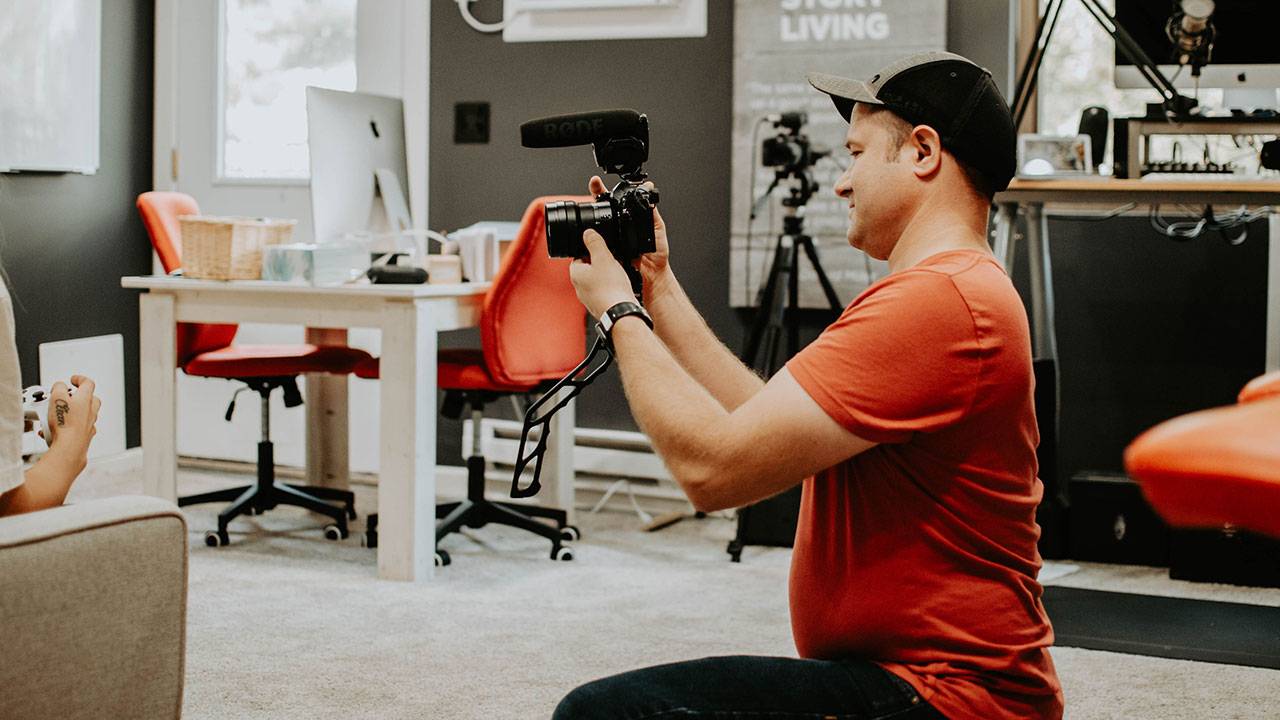
I overcame those challenges by learning the skills and always studying. And I never believed all my videos were awesome. Like, this video is good, but what can I learn from it? And also being aware of my own behavior on YouTube. Why am I clicking this thumbnail and not that thumbnail? Why am I still watching this video?
Q: You mentioned that you got a job helping people grow their channels in 2011. But then the company removed your position and encouraged you to start your own video business. How did it feel to have them believe in you despite everything that happened?
The company definitely planted a seed inside of my head about starting a business. And I was like, I don't know. I don't know anything about business, and I've never run a business before. My degree and background are in theology — not very practical tools outside the nonprofit church world.
But I also didn't feel like I had any other choice. I was going to need some kind of income, and finding another job sounded like a bigger hassle than doing YouTube work.
It was also just a very different experience to have the company say, "Tim, we love you, but we're not going in this direction anymore.” I respect it now because I'm a business owner. I can look back and understand that you have to make hard calls like that.
Q: And then you launched Video Creators two years later. What was it like going into business for yourself?
In 2013, YouTube was a very different place. People were like, "Hey, is someone going to tell Tim that you can't make money on YouTube? You can't grow a business there." And then I had friends and family asking what I was doing.
But I thought, Yes, I can do this. And so, the process for me was different from how I launched other initiatives in the past. By the time I came to Video Creators, I had learned a thing or two from those failures. I knew that in order for me to make Video Creators a full-time job, I could not do it with AdSense. I needed a product to sell. I needed to make some good connections in the industry and start landing some clients.
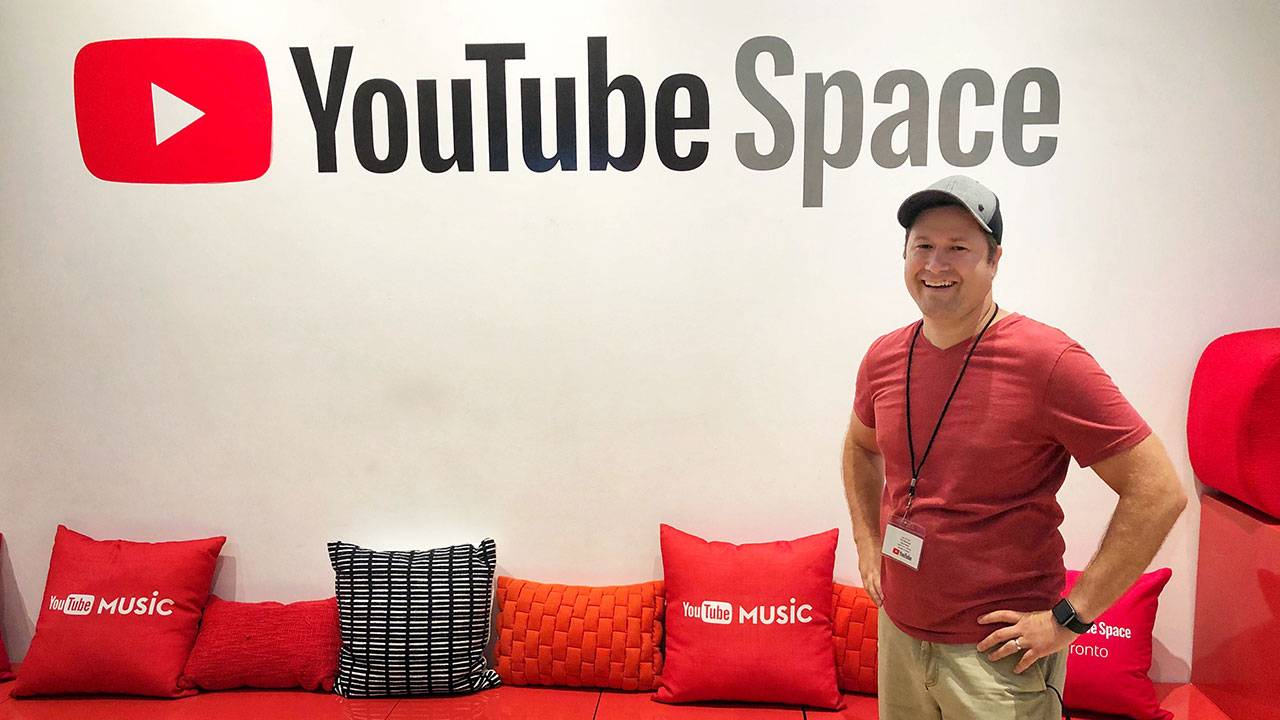
I also learned the hard way that you don't want to launch a product and have no one buy it. So I launched a crowdfunding campaign, and it got funded. The basic principle was to see if you can actually sell something before you create the product.
And becoming a business owner, you're going paycheck to paycheck. Some weeks you don't get any money, and some weeks you get a lot. But I did enjoy the freedom I was getting.
Q: How has Video Creators grown over the years to better serve creators?
A lot of different ways. We've grown together as a team in terms of our processes.
It's important to us that when we advise creators, the advice works. It actually has to produce results, especially with the types of creators we work with. They're usually full-time creators or people growing businesses around their channels.
So it can't just be a good idea or "here's something I tried that worked for me once." These people are entrusting their livelihoods to us. So we really honed some of those processes. How do we get someone to reach an epiphany faster? How do we help the creator generate results more quickly?
And sometimes, it's not about going fast at all. Sometimes we have to slow down one part of their journey to see results.
Q: After coaching thousands of creators, have you noticed a common challenge people face when starting a YouTube channel?
Most creators don’t realize how many skills need to be developed to grow a YouTube channel successfully. The professionals make it look easy — the people we love watching and think, Oh, I could do that. But the people who make things look effortless do so because they’ve been practicing for years.
It’s like watching any musician who’s really good at their craft. They make it look easy to play the piano or the guitar. Or the athlete who’s playing on TV when you think, I could have caught that!
The same is true for YouTube. There are a lot of skills to learn. There’s video production, such as shooting, editing, lighting, sound design, and choosing the right camera gear and equipment. There’s storytelling, branding, and the business side of YouTube that makes all of this sustainable.
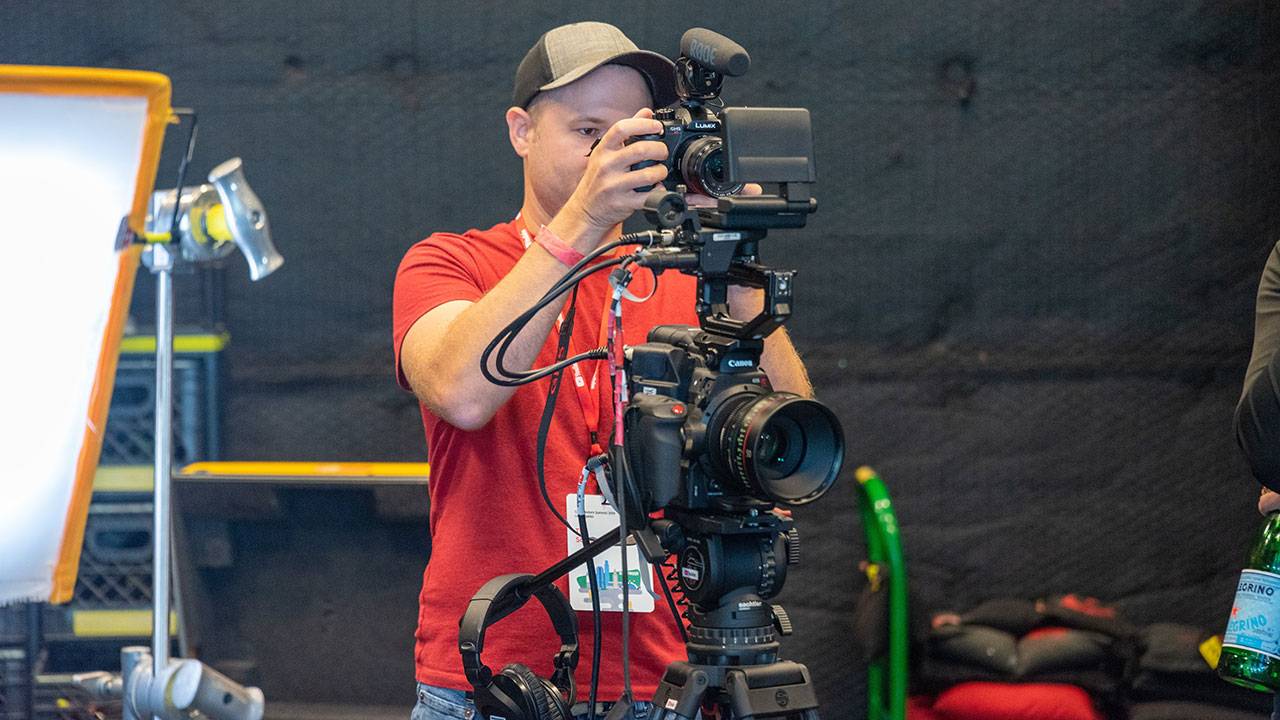
We’ve seen a lot of creators learn those skills, but more consistently, we’ve seen that creators need a coach. We found that when you have someone who understands the big picture — the skills that need to be developed, how they need to be developed and in what order — you make fewer mistakes.
We’re really excited to do that at vidIQ — to give creators the tools and coaching they need to take their channels to the next level.
Q: What inspired you to help millions of YouTube creators succeed?
That dream was inspired when my wife and I were doing some of our early vlogs. One story that stands out to me was when I got an email from a lady in Texas. And she says, "Hey, you don't know me, but I've been watching your vlogs. My husband and I just got married two months ago, and we're already struggling in our relationship. I don't know if we're going to make it."
"But then I saw that video of you and your wife talking about how you're learning to love each other better. I shared it with my husband, and we talked about it. I just wanted to let you know that we have hope again for our marriage. Thank you for making that video."
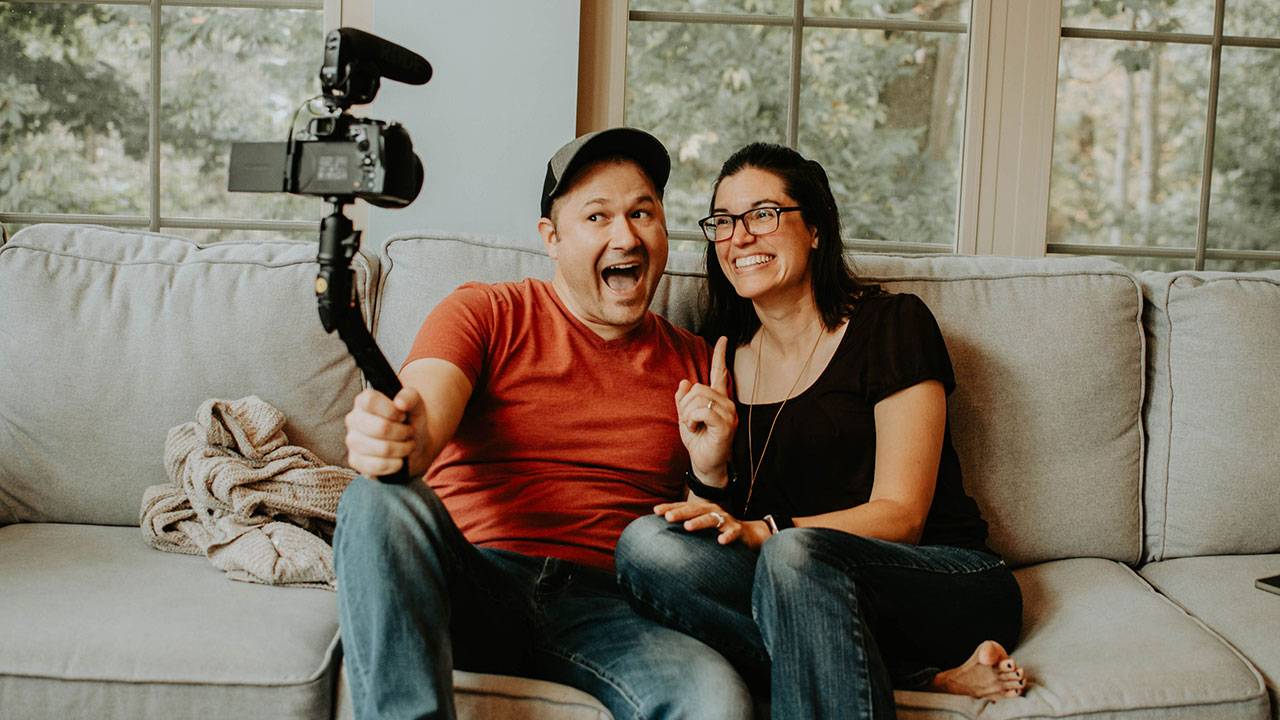
And I was like, that happened from our video? I love that because it's why I got into the church world in the first place: to see lives change. I saw even more lives change from our YouTube work, which inspired me to keep doing it and help other creators succeed.
All photos courtesy of Tim Schmoyer


